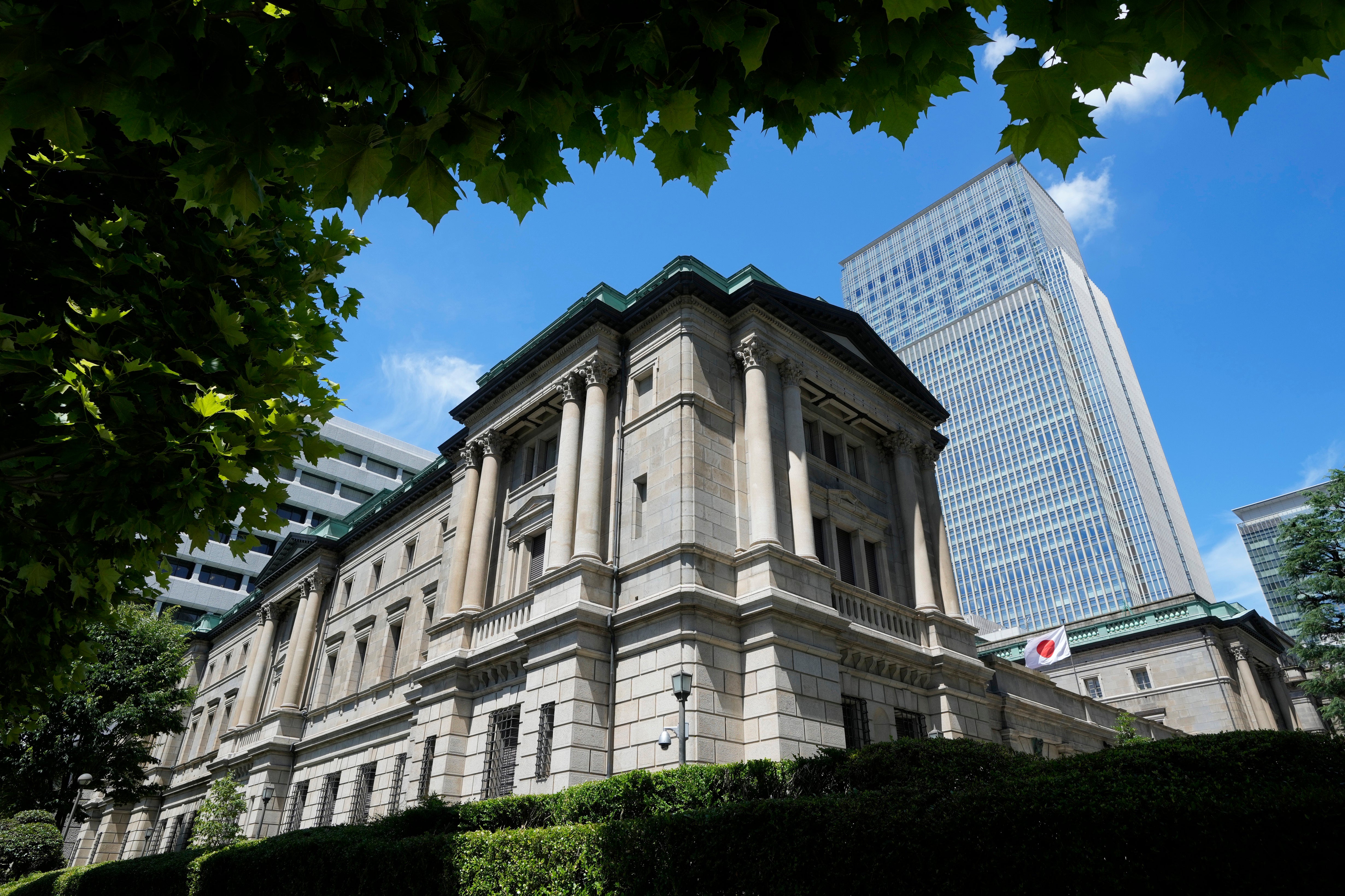Bank of Japan hikes interest rates to highest level in 17 years
Yen soars as central bank suggests more interest rate hikes

Your support helps us to tell the story
From reproductive rights to climate change to Big Tech, The Independent is on the ground when the story is developing. Whether it's investigating the financials of Elon Musk's pro-Trump PAC or producing our latest documentary, 'The A Word', which shines a light on the American women fighting for reproductive rights, we know how important it is to parse out the facts from the messaging.
At such a critical moment in US history, we need reporters on the ground. Your donation allows us to keep sending journalists to speak to both sides of the story.
The Independent is trusted by Americans across the entire political spectrum. And unlike many other quality news outlets, we choose not to lock Americans out of our reporting and analysis with paywalls. We believe quality journalism should be available to everyone, paid for by those who can afford it.
Your support makes all the difference.The Bank of Japan has raised short-term interest rates by a quarter point, the highest in 17 years, signalling efforts to normalise monetary policy in response to persistent inflation and increasing wages.
The central bank raised the policy rate to “around 0.5 per cent” by a vote of 8-1, concluding a two-day policy meeting on Friday. Toyoaki Nakamura was the only board member to dissent against the decision.
The bank’s governor, Kazuo Ueda, had signalled the hike to avoid a market shock as the broad direction of new US president Donald Trump’s policies became clearer. “There’s no change to our view of raising our policy rate and adjusting the degree of monetary support if the economy and prices move in line with our forecasts,” the governor said.
This was the highest hike in borrowing rates in Japan since the 2008 financial crisis.

The central bank had last raised the rates in July 2024, surprising analysts, sparking a period of intense volatility for the yen and prompting a one-day "flash crash" in Japanese equities which quickly rebounded.
The latest hike came as official economic data showed prices of goods and services, excluding certain volatile items like food and energy, increased by 3 per cent in December over the previous year.
The data indicated that consumer inflation could reach 2.7 per cent for the year ending March 2025, up from the October forecast of 2.5 per cent.
The key factors in the first rate hike since July appeared to be the release of these revised forecasts and clarity in initial reactions to Mr Trump’s return to the White House.
Mr Trump had threatened to impose punitive tariffs on all imports which could have impacted all countries that export to the US, such as Japan.
The central bank said it would continue to raise interest rates if economic growth and inflation stayed in line with its projections.
“The likelihood of achieving the bank’s outlook has been rising” with many companies saying they would continue to raise wages steadily in this year’s annual wage negotiations, the bank said in a statement announcing the decision.
“Underlying inflation is heightening towards the Bank of Japan’s 2% target,” it said, adding that financial markets remained stable as a whole.
Following the announcement, the yen rose around 0.5 per cent to 155.32 per dollar. The two-year Japanese government bond yield saw the highest rise since 2009, increasing to 0.705 per cent.
Join our commenting forum
Join thought-provoking conversations, follow other Independent readers and see their replies
Comments